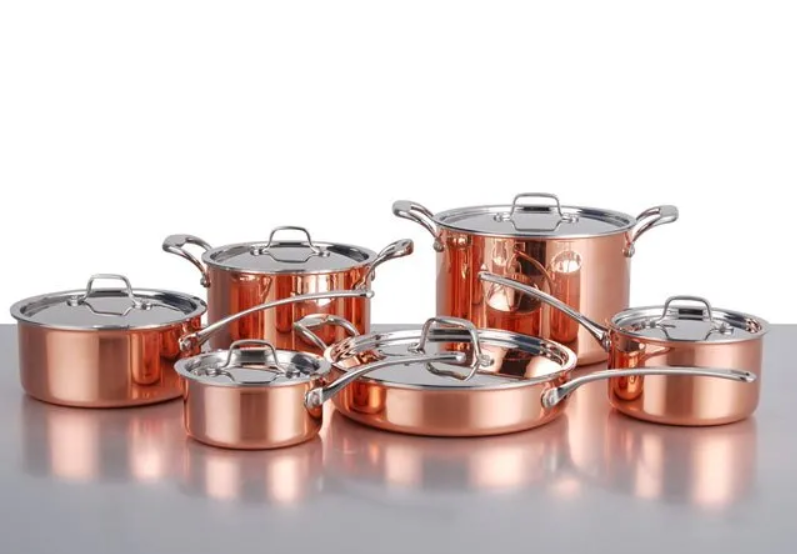A dishwasher is an essential appliance that makes cleaning dishes faster and more convenient. Knowing how to use a dishwasher can help you save time and effort in cleaning up after meals. Before loading the dishwasher, it’s essential to remove any leftover food debris to prevent clogging the machine. It’s also crucial to separate delicate items like crystal or china from the rest of the dishes, as they require more gentle cleaning.

While dishwashers can clean a wide range of items, there are some items that should never be put in the dishwasher, such as wooden utensils, cast iron, copper, and delicate items like antique or hand-painted dishes. Knowing how to properly use and care for your dishwasher can help it last longer and keep your dishes clean and sanitized.
How to Use a Dishwasher?

Here are some tips on how to use a dishwasher effectively:
- Scrape and rinse dishes: Before loading dishes into the dishwasher, scrape off any excess food debris and rinse the dishes to remove any remaining food particles.
- Load dishes correctly: Place larger items like pots and pans in the bottom rack, while plates, bowls, and cups can go in the top rack. Avoid stacking dishes too closely together, as this can prevent water from reaching all areas.
- Use the right detergent: Choose a dishwasher detergent that is suitable for your dishwasher and the type of dishes being washed.
- Select the right wash cycle: Different dishwashers have various wash cycle options, so choose the appropriate one for your load. A shorter cycle may be suitable for lightly soiled dishes, while a longer cycle may be needed for heavily soiled items.
- Avoid overcrowding: Overcrowding the dishwasher can result in poorly cleaned dishes. Leave enough space between items to allow water and detergent to circulate freely.
- Unload the dishwasher properly: After the cycle is complete, unload the dishwasher starting with the bottom rack to avoid any water droplets from falling on the dishes below.
What Not to Clean in Dishwasher?
While dishwashers can clean a wide range of items, there are some items that should never be cleaned in a dishwasher, including:
1. Wooden Utensils

Wooden utensils should not be cleaned in the dishwasher as the high heat and moisture can damage them. The water can cause the wood to swell, warp, and crack, and the heat can cause the wood to dry out and split. Instead, wash wooden utensils by hand using mild soap and warm water, and then dry them thoroughly with a clean towel. You can also periodically treat wooden utensils with mineral oil or beeswax to keep them in good condition.
2. Cast Iron

Cast iron is a durable and versatile material commonly used for cooking. While it’s a great choice for many types of dishes, it’s important to avoid cleaning it in the dishwasher. The harsh detergents and high temperatures in the dishwasher can strip cast iron of its seasoning, which is the non-stick coating that develops over time with use. To clean cast iron, it’s best to hand wash it with hot water and a mild soap, then dry it thoroughly and apply a light coat of oil to protect it.
3. Copper Cookware

Copper cookware is prized for its excellent heat conductivity and responsiveness, but it requires special care and attention to maintain its beautiful appearance. To clean copper cookware, it’s best to avoid the dishwasher and instead wash it by hand with a gentle copper cleaner or a mixture of vinegar and salt. Dry it thoroughly with a soft cloth to prevent water spots, and store it in a dry, cool place. With proper care, copper cookware can last for generations and provide excellent cooking performance.
4. Non-Stick Cookware

Non-stick cookware is a popular choice for its ease of use and low maintenance. However, it’s important to take care when cleaning non-stick cookware to avoid damaging the non-stick coating. Dishwashers can be too harsh for non-stick cookware and cause the coating to degrade over time. To clean non-stick cookware, it’s best to use a soft sponge or cloth with mild dish soap and warm water. Avoid using abrasive cleaners or metal utensils that can scratch the non-stick surface. Dry the cookware thoroughly before storing it to prevent water spots.
5. Delicate Items

Delicate items like fine china, crystal glassware, and hand-painted ceramics should be hand-washed to avoid damage from the high heat and agitation of a dishwasher. When hand-washing, use a mild dish soap and warm water, and avoid using abrasive sponges or brushes that can scratch or damage the surface. Be gentle when handling delicate items, and dry them carefully with a soft cloth to avoid leaving water spots or scratches. Store them in a safe and secure place where they won’t get bumped or jostled.
6. Certain Plastics

Certain plastics are not dishwasher-safe and can become warped or melted if cleaned in a dishwasher. To identify if a plastic item is dishwasher-safe, look for the dishwasher-safe label on the item or check the manufacturer’s instructions. If you’re unsure whether a plastic item is safe to clean in the dishwasher, it’s best to err on the side of caution and hand-wash it instead. Use a gentle dish soap and warm water, and avoid using abrasive sponges or brushes that can scratch or damage the surface.
By avoiding cleaning these items in the dishwasher, you can ensure they remain in good condition and last longer.
Conclusion
Dishwashers can save time and effort in cleaning dishes, but not all items are safe to clean in them. Items like wooden utensils, cast iron, delicate glassware, non-stick cookware, certain plastics, sharp knives, and copper or brass should be avoided. It’s always best to read the manufacturer’s instructions before cleaning any item in the dishwasher. To clean items that are dishwasher-safe, use a mild detergent, load the dishwasher properly, and choose the appropriate cycle. When in doubt, it’s best to hand-wash the item to avoid damage.
